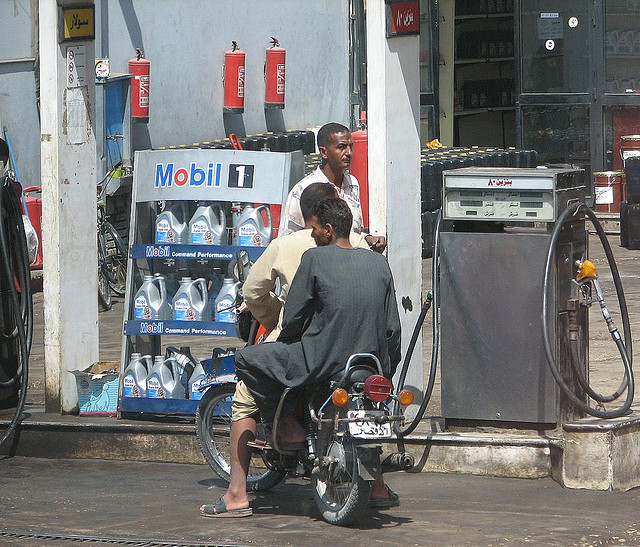
Energy subsidies have been an integral part of domestic pricing policies in most Arab countries for decades, but are increasingly unsustainable because of their economic, social, and environmental impact. Out of twenty Middle East and North African (MENA) countries, twelve have energy subsidies amounting to at least 5 percent of gross domestic product (GDP). A recent International Monetary Fund (IMF) report entitled “Energy Subsidy Reform: Lessons and Implication” documents the impact of energy subsidies worldwide and calls on policymakers to implement new strategies for growth and development. The study offers a roadmap for subsidy reform based on best practices to alleviate budgetary pressures and mitigate inflationary effects on the most vulnerable in society.
The Arab Spring, which called for fundamental changes in the social contract between governments and citizens, has clarified the burden of subsidies. The authoritarian rulers who were toppled in Tunisia, Egypt, and Libya have been replaced with elected governments intent on appeasing constituencies. Governments in Arab countries that have not undergone transitions also felt the pressure to use all means, including economic, to hold on to power. So far, elected and unelected governments alike have tended to maintain untargeted energy subsidies. Oil-exporting governments have been able to buy peace, at least temporarily, by offering public spending programs paid for with petroleum revenues in exchange for political stability.
The IMF estimates that in 2011, MENA governments spent about $240 billion (54 percent of total global subsidies) in pretax energy subsidies. Pretax subsidies occur when consumers pay less than the supply cost. Post-tax subsidies, the sum of pretax and tax subsidies, most prevalent in MENA, were four times as large as pretax subsidies. In 2011, MENA post-tax energy subsidies accounted for 50 percent of global energy subsidies that totaled $2 billion. As global energy prices continue to rise, subsidies exert pressure on government budgets resulting in higher deficit and debt levels. The economic impact of energy subsidies is undeniable and must be addressed sooner rather than later.
Fuel subsidies account for the bulk of energy subsidies consumption. In Egypt, the most populous Arab country, energy subsidies amount to about $25 billion a year, 30 percent of total government spending, and over 10 percent of GDP. The ongoing negotiations between the IMF and the government of Egypt for a $4.8 billion loan are contingent upon reforming fuel (and food) subsidies. The IMF has advocated targeted social protection programs and a progressive tax structure as more efficient ways to protect the poor and manage the economy. The same strategy is evident in other Arab countries with IMF programs.
The IMF recognizes that reform of subsidies will encounter serious political resistance but continues to pursue subsidy reform in MENA as a way to help governments alleviate fiscal pressures. There are different ways to finance subsidies, including using implicit and explicit subsidies. Explicit energy subsidies are direct transfers from a state budget to the producers or consumers that benefit from a discounted good. Such expenditures are transparent and reported in the government budget resulting in a negative fiscal balance. Oil-exporting countries, where consumption of petroleum is high, are able to manipulate their budgets by underpricing fuel products lower than the international price. On the other hand, implicit subsidies are not reflected in state budgets and their true impact is often undisclosed. Unlike explicit subsidies, there is no immediate transfer of funds from the government to a company to cover the shortfall in revenue caused by the presence of a subsidy. Therefore, the shortfall is often covered by borrowing or by lowering expenditures below the optimal level, thus misallocating resources.
Although most Arab leaders (reflecting the wishes of their population) continue to resist subsidy reforms, it is a sticking point for the IMF because the consequences of energy subsidies stretch beyond fiscal costs. Besides the macroeconomic effects, including government accounts, the balance of payments, the long‐run growth, and the degree of investment, energy subsidies result in social and environmental consequences. With superficially low energy rates priced below world markets domestic consumption has increased resulting in fewer exports and less conservation. Public spending on energy infrastructure is crowded-out and greater resources are allocated for energy intensive sectors. Subsidies on energy create negative externalities and reinforce inequality, while fluctuating world energy prices lead to volatile budgets.
The IMF, in recognizing the challenge of abolishing subsidies altogether, calls on MENA governments to reduce wasteful expenditures by enhancing social welfare programs with investments in healthcare and education. Alternative schemes rely on direct cash transfers to households, price discrimination based on geographic location, by amount of use, or per fixed cost of connection. Another way to mitigate the effects of reducing or eliminating petroleum subsidies is to identify groups of low-income families and compensate them based on their needs.
The IMF report recommends six ways to reform energy subsidies. First, produce a comprehensive reform plan focused on long-term objectives. Second, and most crucial to overcoming political hurdles, is the development of a communications strategy to inform and educate the masses about the benefits of reform followed by a phase-out period with sequencing of products. It is often the case that the public is unaware of the benefits of subsidy removal or simply does not trust the government to reallocate budgetary savings. Fourth, policymakers need to work with state-owned enterprises (SOEs) to reduce their fiscal burden, including improving collection of energy bills. The fifth step is to adopt targeted measures tailored specifically to the country in question. Finally, the process of energy pricing must be depoliticized and automatic price mechanisms adopted to protect the most vulnerable to subsidy reforms.
Svetlana Milbert is assistant director of the Atlantic Council’s Rafik Hariri Center for the Middle East. Photo credit.
